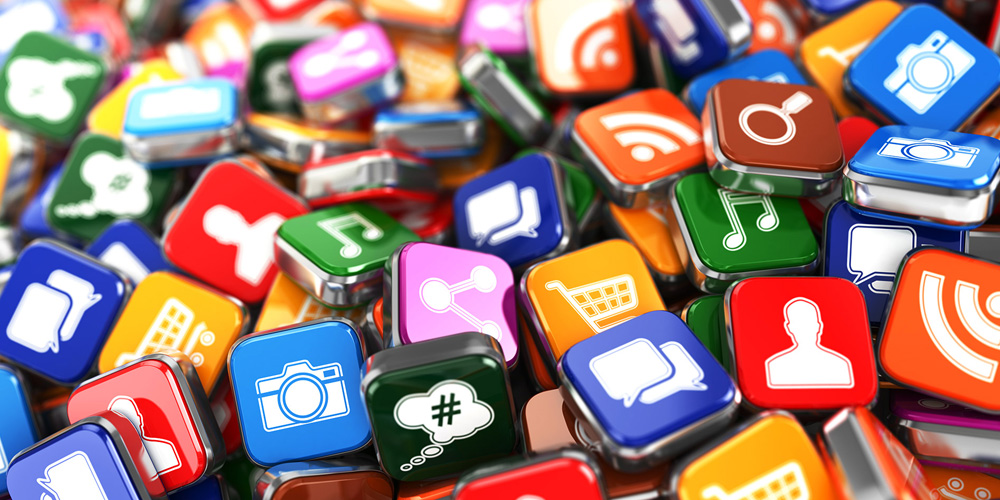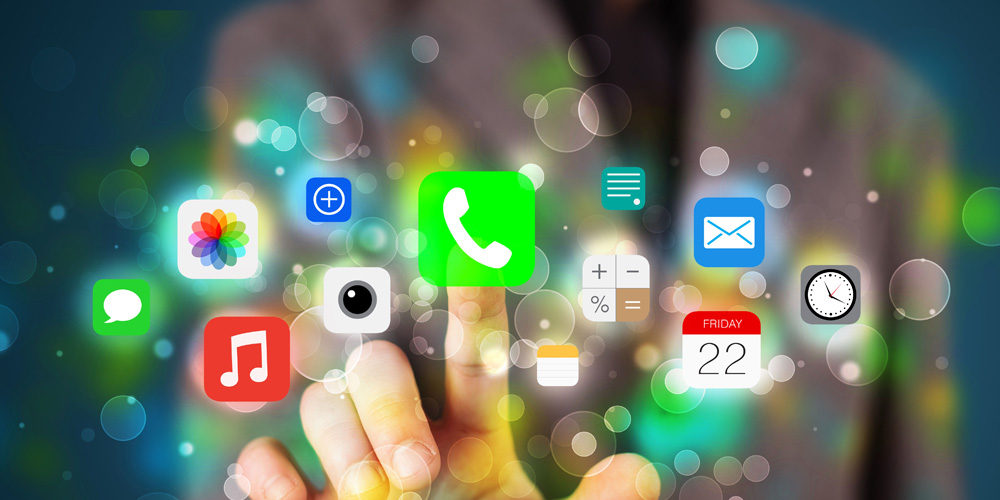Mobile applications, or apps, became the focus of mobile revolution since Apple introduced its App Store in 2008. What it did was creating a way to blend user experience to a device, while extending it beyond limited abilities by making apps range across different channels and context. Apps give many businesses a way to look beyond serving customers towards a world where boundaries between services shattered.
"There's an app for that," said Steve Jobs. And there is a good reason behind that statement.
What made apps popular is their ability to solve users' problems. Developers are in needs to build a solution to solve those challenges. And here, apps are seen as answers.
But what made apps able to answer given problem by personalizing answers uniquely to different users? For apps to solve a problem, they may require the needs to go beyond itself, and the internet. For example, apps may require data from other devices, from cloud services, from a device's camera or other sensors for environmental sensing, the ability to read the user's contact list, and many others.
Companies may even go so far as to incorporating their apps into other apps. This is called "going beyond siloed apps."
By allowing what they need to do, apps are meant to solve problems. This is the mobile revolution we're seeing.
But going beyond such boundaries means going deeper into users' privacy. That sort of communication requires some extended degree of openness, and the will for users to grant those permissions.

Adding Up Complexity To The Already Sophisticated
Modern, popular and large-in-size apps can usually do a lot of things. From its main core purpose to social media interaction, adding contact list, accessing a device's camera, microphone and others, read and write to the device's storage, and many more.
Adding more connections, and to make an app more useful, or adding more services to the already existing, is adding more complexity to the already complicated. While it can certainly make a much better experience by allowing users to do a lot of things, but it also leaves more vulnerabilities.
More features mean a lot more to protect. If a feature is a wall, the more walls created the more weaknesses it'll have. In short, the app will have more walls to protect, and more walls to be broken by exploitation of bugs and hackers.
Beside those, complexity also adds more variables to the existing equation.
If for example an app is meant to secure your home automatically when you're out of range, it needs sensors for the app to learn the user's whereabout. Furthermore, it needs to know whether a guest or family member is present in the house.
The key is simplicity.

More Social, More Open
There was a time when we used to chat on MIRC, ICQ and AOL. With the many popular chatting apps we have today, those three is like the 90s. While the internet has yet to "boom" at that time, now we're seeing more than 80 percent of engagement on chatting apps. When chatting once was limited to computers we have in our homes, now those computers are just as small as your palm.
The mobile revolution helped the rise of "social revolution". We're seeing the messaging industry erupting like never expected before. From WhatsApp to Messenger, to Snapchat, Signal, Telegram to LINE, KakaoTalk and WeChat. There are many of them, and they're all free to use.
As the internet progresses to become larger and more people are using it on their daily basis, we're seeing a growing number of those apps blooming like from nowhere.
From those messaging apps, social media is the next thing (and probably the most important to refer) here. Social apps are getting close to us like never before. When was the last time you find difficulties in finding someone? Or getting a glimpse of information about a person? Or probably keeping up to date with your friends? Social media has helped us in many ways. They're inside that social revolution which made our world much smaller than they appear.
Social revolution is now global. With billions of users, we can almost say that everyone in the world has a presence there.
The social revolution is somehow piggybacking on the popularity of the internet, and of course the mobile revolution itself. Facebook is a great example when it opened its platform for developers on top of its API by allowing publishers to distribute contents in a way that is different from Facebook's core business. And when Mark Zuckerberg decided to "unbundle the big blue app", it's just like saying he's trying to put more emphasis to the power of social with Facebook, and the importance of others related. Here, messaging is by its Messenger app.
What Facebook did was creating a diversity. And by making a collaborative platform by allowing API available for developers, the company is having many helping hands in promoting itself to the wilderness where it may find difficulties to master on its own.
When most companies are trying to solve a users' given problems with apps with a return of growth and monetization, social apps are somehow able to engage their users to expand their offerings in a way that actually enhance user experience. This is their main advantage, thanks to that massive amount of specific personal data they have from their users.

Personalization For Unique Answers
Everyone has needs, but their needs differ from one person to another. Since a problem can have many answers, how can an app solve a problem by specifically tailor an answer unique to a person? The answer is personalization.
Search data is the most personal data, and allowing websites (also apps) to personalize experience would be better.
Yahoo!'s Marissa Mayer once said:
Further reading: The Web is Better If You Let Websites Personalize it for You
The point here is people need answer, and apps should have the ability to solve problems by uniquely identifying individuals to perform a quick look about what he/she might be interested with.
Allowing apps, or any internet services for that matter, in getting more of our personal data, will help them in giving us the solution to a problem. We can certainly get what we want faster and easier in a way that the answers actually interest us.
Lets say you browse at your friends' profiles on Facebook and put some comments there frequently. Your engagements are recorded for future purpose like for example, giving you more posts about those friends more than others you have less to no interactions.
What made the mobile revolution and also social revolution possible, is because of the data we gave those companies that asked. Without much personalization, or when a person prefers to maintain the strictest standards of privacy on the internet, then his or her experience online will be subpar.
Data is the key to understanding users, and allows publishers to provide a native, flawless experience that encourages users spend more time and money within their apps. But, simply having the data is not enough; knowing what to do with it is the key to beating your competition.